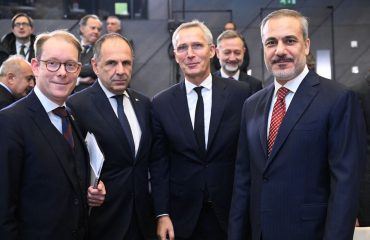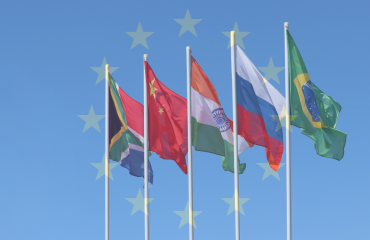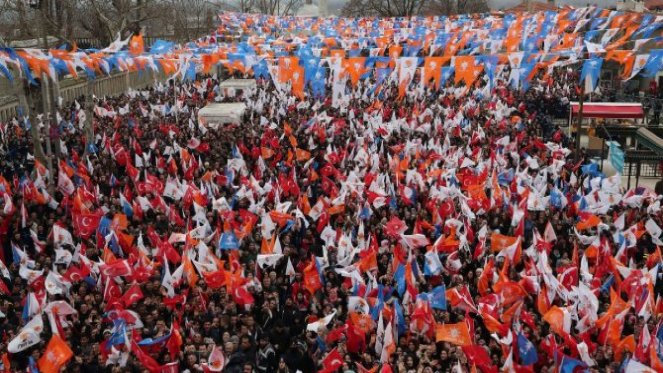

The economy is undoubtedly the most crucial issue in Turkey right now. The Turkish Central Bank’s decision to lower the interest rates and the persona non grata crisis over the release of Osman Kavala depreciated the Turkish lira further. A winter, which we knew would be difficult, became even more difficult due to the increases in energy and food prices, which is likely to upset especially lower-income voters. That may create further problems in the social structure of Turkey.
Let’s see what the polls say. In our October 2021 Turkey Report research, we observed that the trends which we have been following for a year have started to become permanent. The Nation and the People’s Alliances are head-to-head. Support for the Nation and the People’s Alliance is at 28% before the undecided votes are distributed and 40% after they were distributed. The HDP and other opposition parties, DEVA, Future, and Felicity Party, increase the gap between the two alliances in favor of the opposition after the undecideds are dispersed. The support for the opposition is 60% of the votes and 40% of the government. In the Turkey Report surveys, we have conducted since September 2019. We have never seen the gap widen so much.
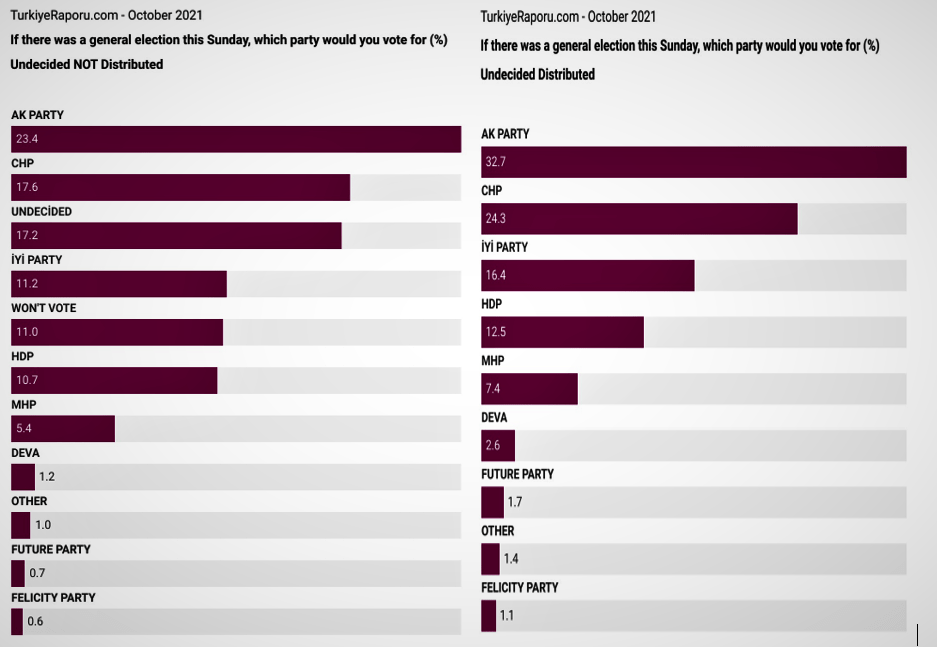
Unhappy AK Party voters remain “undecided”
Another interesting result in this table; the government loses, but the opposition does not win. The support that AK Party and the MHP have been losing since September 2020 does not flow to the opposition. IYI Party has caught an upward trend recently; it has placed its support in the range of 15-17%. While DEVA and Future did not show any meaningful development, CHP has not yet been able to turn its local election success into overall support. The waning support for the ruling parties creates a large neighborhood of the “undecided”. So much so that as of October, undecided people are at the level of 17%. We see that a significant part of them voted for the AK Party or MHP in the previous elections.
What will the undecided do?
The answer to this question will determine the balance of 2023. It may be useful to look at the behavior of the unhappy AK Party voters in the past to give a better answer to this question. As the Turkey Report, we analyzed the ballot box results of the 100 districts where the AK Party received the most votes between the 2011 and 2018 elections. Whenever the voter turnout in those districts decreased, the AK Party votes also decreased. Thus, the typical behavior of disgruntled AK Party voters is not to go to the polls. I think there are two main reasons for this behavior. The first is that during this period, things have never been as bad as they are today. The second reason is that there are no alternatives for the disgruntled AK Party member to feel comfortable with during this period.
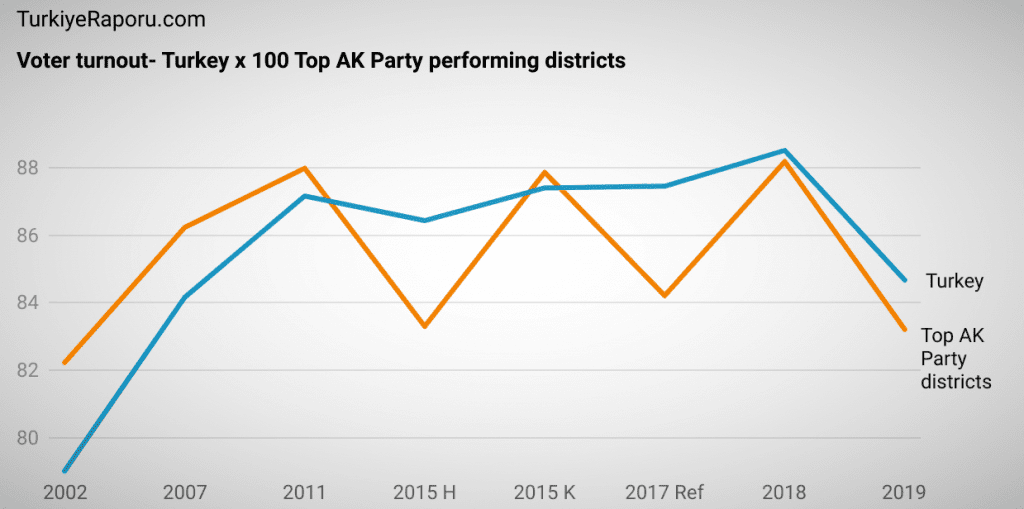
Economy or Identity?
In 2018, the IYI Party participated in the elections, but its identity had not yet been established, and its sphere of influence was not clear. Now the situation is different. Now, there are players in the opposition that the AK Party voters will not feel alien from an identity perspective. Why is this important? Because rational reasons such as the economy or governance are the only determinants of voter behavior. A crucial part of the decisions that guide the voters is emotional, and identity is the most important of these feelings. Demonized in the polarizing environment of the past decade, the CHP and its leader are still far from building an emotional bridge with the undecided AK Party voters. On the other hand, Meral Akşener, Ali Babacan, and Ahmet Davutoğlu have a higher potential in this field as leaders on the right of the political spectrum.
Why would an African-American vote for Trump?
In this part of the article, it is necessary to talk about mega identities. In his book “Why We’re Polarized”, American journalist Ezra Klein talks about mega-identities formed by the combination of intertwined political and social identities. He uses this concept to explain why a voter who would normally not have voted for Trump, based on Trump’s rhetoric, still voted for Trump.
For example, why would an African-American vote for Trump, who has racist rhetoric against them? Because he defined himself in the opposite neighborhood of “latte-drinking liberal democrats” and his republican-conservative mega-identity, which includes his social preferences, causes him to vote for Trump despite everything. I think there is a similar situation in Turkey.
Some of the low-middle-income citizens, who are in a difficult situation economically, state that they will either still vote for the People’s Alliance parties or are undecided in the polls, even if the government clearly makes a policy choice against them. This is the result of the brutally polarizing politics of the last 10 years.
The need to focus on identity issues
This problem is difficult for the opposition, but it is not unsolvable. 1.5 years ago, I evaluated that the opposition would have an identity problem at the last instance and suggested that a new center-right alliance should be established on the opposition side. My opinion has not changed, but the current preferences of the opposition parties make it pointless to talk about it anymore. What can be done then?
What needs to be done is to expand the Nation Alliance and normalize the opposition mega-identity formed under the monopoly of the CHP. I shouldn’t be the only one who thinks this because the Nation Alliance has invited DEVA and Future parties to join the alliance in the past weeks.
The bill caused by Erdoğanomics is getting higher for both the citizens and the People’s Alliance. Will the MHP demand early elections at some stage, no longer wanting to shoulder the cost? If I had written this article 10 days ago, I would not have considered it highly probable, but now I refrain from speaking with the same determination. On the other hand, when society cannot bear this bill, an election may become inevitable. The opposition needs to resolve the identity problem by then.

